第39章
Toward the end of his illness, John lay one night inside his door, looking soberly, sorrowfully out into the moonlight.A chair sat outside, and the parson walked quietly up the green hill and took it.Then he laid his hat on the grass; and passed his delicate hands slowly backward over his long fine straight hair, on which the moonbeams at once fell with a luster as upon still water or the finest satin.
They talked awhile of the best things in life, as they commonly did.At length the parson said in his unworldly way:
"I have one thing against Aristotle: he said the effect of the flute was bad and exciting.He was no true Greek.John, have you ever thought how much of life can be expressed in terms of music? To me every civilization has given out its distinct musical quality; the ages have their peculiar tones; each century its key, its scale.For generations in Greece you can hear nothing but the pipes; during other generations nothing but the lyre.Think of the long, long time among the Romans when your ear is reached by the trumpet alone.
"Then again whole events in history come down to me with the effect of an orchestra, playing in the distance; single lives sometimes like a great solo.As for the people I know or have known, some have to me the sound of brass, some the sound of wood, some the sound of strings.Only--so few, so very, very few yield the perfect music of their kind.The brass is a little too loud; the wood a little too muffled; the strings--some of the strings are invariably broken.I know a big man who is nothing but a big drum; and Iknow another whose whole existence has been a jig on a fiddle; and I know a shrill little fellow who is a fife; and I know a brassy girl who is a pair of cymbals; and once--once," repeated the parson whimsically, "I knew an old maid who was a real living spinet.I even know another old maid now who is nothing but an old music book--long ago sung through, learned by heart, and laid aside: in a faded, wrinkled binding--yellowed paper stained by tears--and haunted by an odour of rose-petals, crushed between the leaves of memory: a genuine very thin and stiff collection of the rarest original songs--not songs without words, but songs without sounds--the ballads of an undiscovered heart, the hymns of an unanswered spirit."After a pause during which neither of the men spoke, the parson went on:
"All Ireland--it is a harp! We know what Scotland is.John," he exclaimed, suddenly turning toward the dark figure lying just inside the shadow, "you are a discord of the bagpipe and the harp: there's the trouble with you.
Sometimes I can hear the harp alone in you, and then I like you; but when the bagpipe begins, you are worse than a big bumblebee with a bad cold.""I know it," said John sorrowfully."My only hope is that the harp will outlast the bee.""At least that was a chord finely struck," said the parson warmly.After another silence he went on.
"Martin Luther--he was a cathedral organ.And so it goes.And so the whole past sounds to me: it is the music of the world: it is the vast choir of the ever-living dead." He gazed dreamily up at the heavens: "Plato! he is the music of the stars."After a little while, bending over and looking at the earth and speaking in a tone of unconscious humility, he added:
"The most that we can do is to begin a strain that will swell the general volume and last on after we have perished.As for me, when I am gone, Ishould like the memory of my life to give out the sound of a flute."He slipped his hand softly into the breastpocket of his coat and more softly drew something out.
"Would you like a little music?" he asked shyly, his cold beautiful face all at once taking on an expression of angelic sweetness.
John quickly reached out and caught his hand in a long, crushing grip: he knew this was the last proof the parson could ever have given him that he loved him.And then as he lay back on his pillow, he turned his face back into the dark cabin.
Out upon the stillness of the night floated the parson's passion--silver-clear, but in an undertone of such peace, of such immortal gentleness.It was as though the very beams of the far-off serenest moon, falling upon his flute and dropping down into its interior through its little round openings, were by his touch shorn of all their lustre, their softness, their celestial energy, and made to reissue as music.It was as though his flute had been stuffed with frozen Alpine blossoms and these had been melted away by the passionate breath of his soul into the coldest invisible flowers of sound.
At last, as though all these blossoms in his flute had been used up--blown out upon the warm, moon-lit air as the snow-white fragrances of the ear--the parson buried his face softly upon his elbow which rested on the back of his chair.
And neither man spoke again.